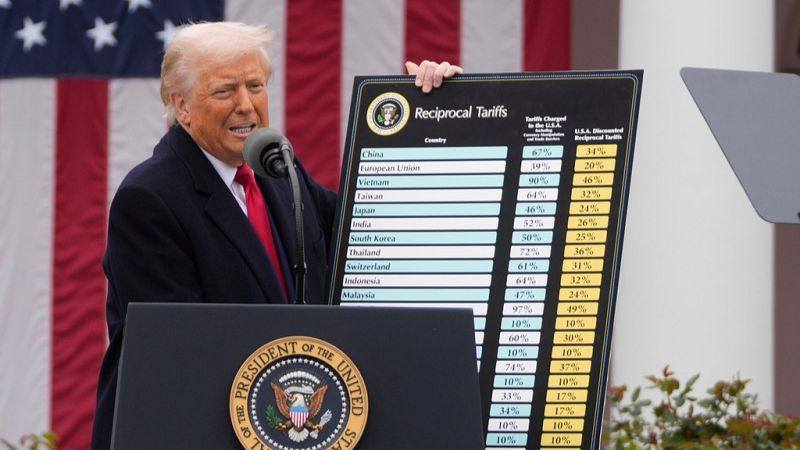
A federal court blocked US President Donald Trump from imposing sweeping tariffs on imports under an emergency-powers law, throwing his signature set of economic policies that have rattled global financial markets into doubt.
The ruling from a three judge panel at the US Court of International Trade based in New York came after several lawsuits against the Trump policies. The lawsuits argued that Trump’s “Liberation Day” tariffs exceeded his presidential authority.
Trump has repeatedly said tariffs would force manufacturers to bring back factory jobs to the United States and generate enough revenue to reduce federal budget deficits.
The US president has used tariffs to strongarm other nations to negotiate agreements favourable to the US, suggesting he would simply set the rates himself if the terms were unsatisfactory.
White House spokesperson Kush Desai said that trade deficits amount to a national emergency “that has decimated American communities, left our workers behind, and weakened our defence industrial base — facts that the court did not dispute.”
“The Trump administration remains committed to using every lever of executive power to address this crisis and restore American Greatness,” added Desai.
As things stand, Trump might not have the threat of import taxes to exact his will on the world economy as he had intended, since doing so would require congressional approval.
What remains unclear is whether the White House will respond to the ruling by pausing all of its emergency power tariffs in the meantime.
Trump might still be able to temporarily launch import taxes of 15% for 150 days on nations which the US runs a substantial trade deficit with. The ruling notes that a president has this power under Section 122 of the Trade Act of 1974.
The ruling dealt a crucial blow to some of Trump’s signature and most controversial actions of his four-month-old second term. The administration swiftly filed notice of appeal, under which the Supreme Court will almost certainly be called upon for a final ruling.
The case was heard by three judges; Timothy Reif, who was appointed by Trump, Jane Restani, named to the bench by President Ronald Reagan and Gary Katzman, an appointee of President Barack Obama.
The ruling left in place any tariffs that Trump put in place using his Section 232 powers from the Trade Expansion Act of 1962.
While tariffs must typically be approved by Congress, Trump has said he has the power to act to address the trade deficits he calls a national emergency.
A dozen states also filed lawsuits, led by Oregon. “This ruling reaffirms that our laws matter, and that trade decisions can’t be made on the president’s whim,” Oregon Attorney General Dan Rayfield said.







